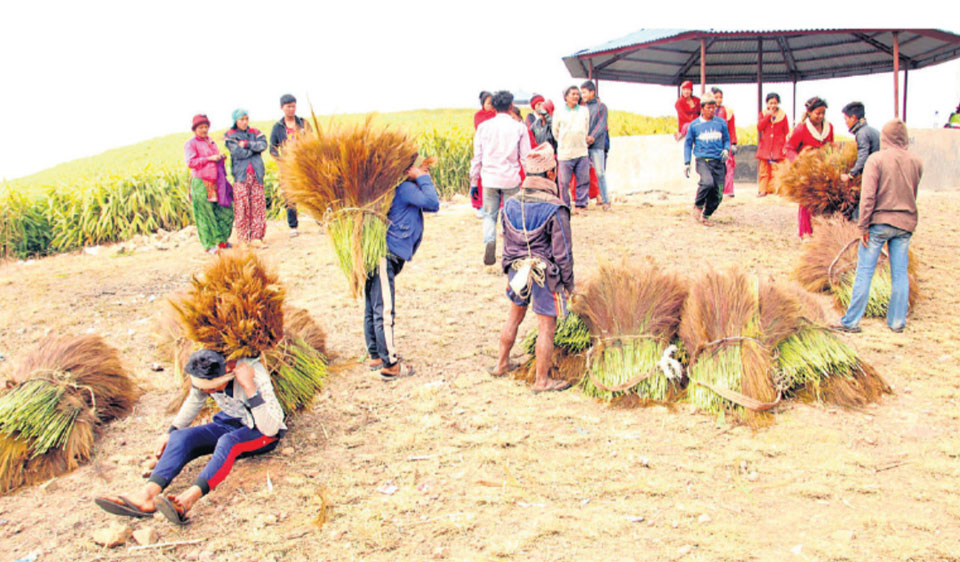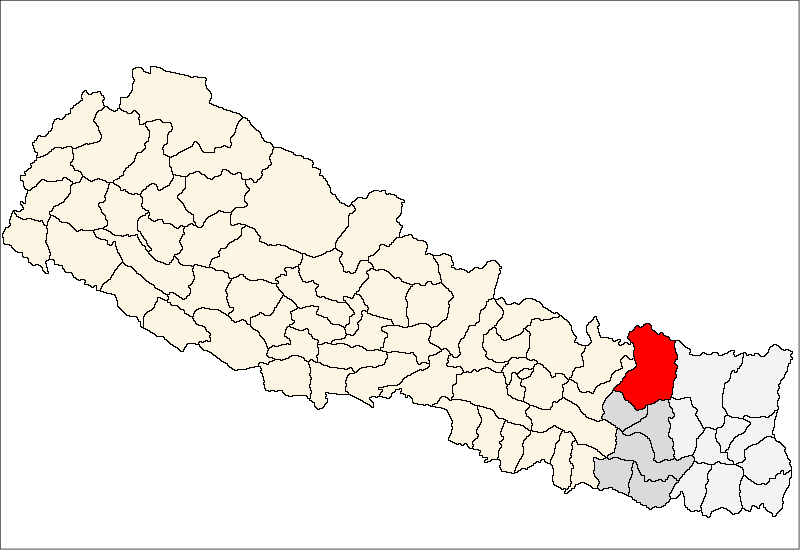
OR
Broom worth Rs 100 million sold during Tihar
Published On: November 12, 2023 02:30 PM NPT By: Republica | @RepublicaNepal

KATHMANDU, Nov 12: During the Tihar festival, brooms hold special significance as every corner of houses, offices, and shops is cleaned with a broom, believing that the Goddess of Wealth, Laxmi, visits clean places. People consider brooms, along with gold, silver, copper, brass, and other items, as important during the Tihar festival.
In Nepal, brooms worth approximately Rs 2 billion are produced. According to the Nepal Broom Association, the demand for brooms is higher during Tihar than at other times. About Rs 1 billion is spent annually on brooms, with Rs 100 million worth of brooms sold during Tihar.
Raj Kumar Karki, the President of the Association, stated that tiger grass, used to make brooms, costs Rs 120 per kilogram, and it takes about 200 to 300 grams of tiger grass to produce one broom. Nepal is self-sufficient in broom production, and Karki mentioned that the country exports about Rs 1 billion worth of brooms to India.
"It may be surprising that we even export brooms. Until a few years ago, brooms used to be imported from India and China. But now, we have become self-sufficient in brooms," said Karki. In the last fiscal year, the raw material for brooms, tiger grass worth Rs 1 billion, was exported to India, with around Rs 700 million worth of tiger grass exported the previous year. Karki highlighted that broom exports contribute to bringing foreign currency into Nepal.
Exports have increased due to zero customs policy in export industries, and India has provided customs exemptions. However, the market expansion has been limited due to the high cost of customs in Bangladesh. The use of brooms made from tiger grass is increasing across Nepal, from villages to cities and from east to west.
Tiger grass is versatile, available locally, and its flowers and leaves are believed to increase milk production when fed to cattle. From an environmental perspective, it helps minimize the risk of landslides, especially in hilly regions built on ridges.
Broom production from tiger grass is based on local ingredients and skills, providing opportunities for women, disabled individuals, those from backward classes, and the economically disadvantaged to become entrepreneurs. Tiger grass is easily cultivated on hilly slopes without snow or dew. Commercial cultivation occurs in various districts of Nepal, with statistics from the NBA indicating that tiger grass is cultivated in about 43 districts across the country.
You May Like This

Jailbirds receive tika
DAMAULI, Nov 9: Jailbirds in Tanahun prisons Tihar festival with joy after they received tika from their sisters. Jailer Narayan... Read More...

11:55 am auspicious time for Bhai Tika
KATHMANDU, Oct 15: Nepal Calendar Determination Committee has announced the auspicious time for receiving and offering Bhai Tika on the... Read More...

Mustang supplied 5,000 mountain goats in Tihar
MUSTANG, Nov 2: For the Tihar celebrations, the country received a supply of 5,000 mountain goats from Mustang as compared... Read More...




Just In
- NEA Provincial Office initiates contract termination process with six companies
- Nepal's ready-made garment exports soar to over 9 billion rupees
- Vote count update: UML candidate continues to maintain lead in Bajhang
- Govt to provide up to Rs 500,000 for building houses affected by natural calamities
- China announces implementation of free visa for Nepali citizens
- NEPSE gains 14.33 points, while daily turnover inclines to Rs 2.68 billion
- Tourists suffer after flight disruption due to adverse weather in Solukhumbu district
- Vote count update: NC maintains lead in Ilam-2













Leave A Comment